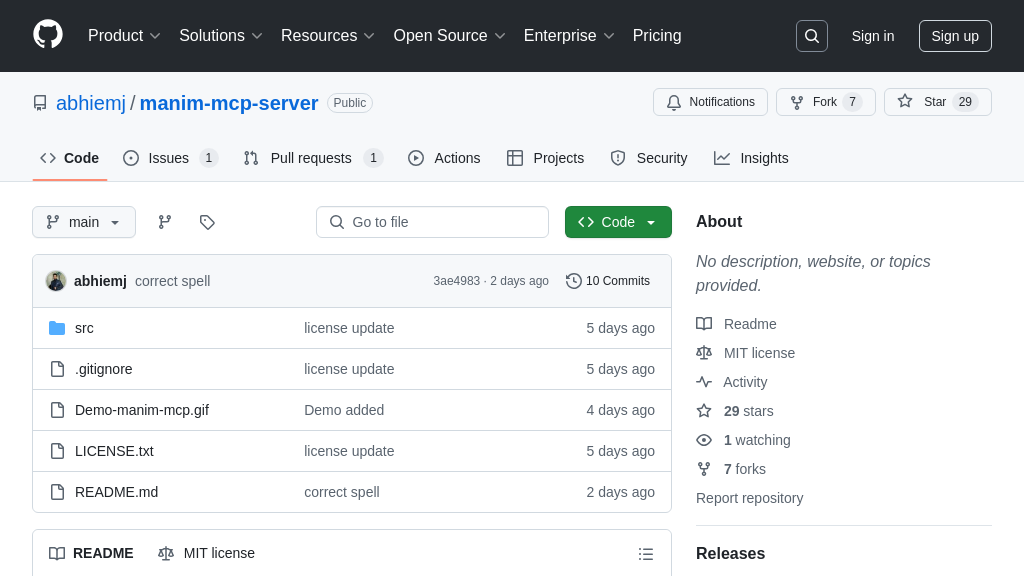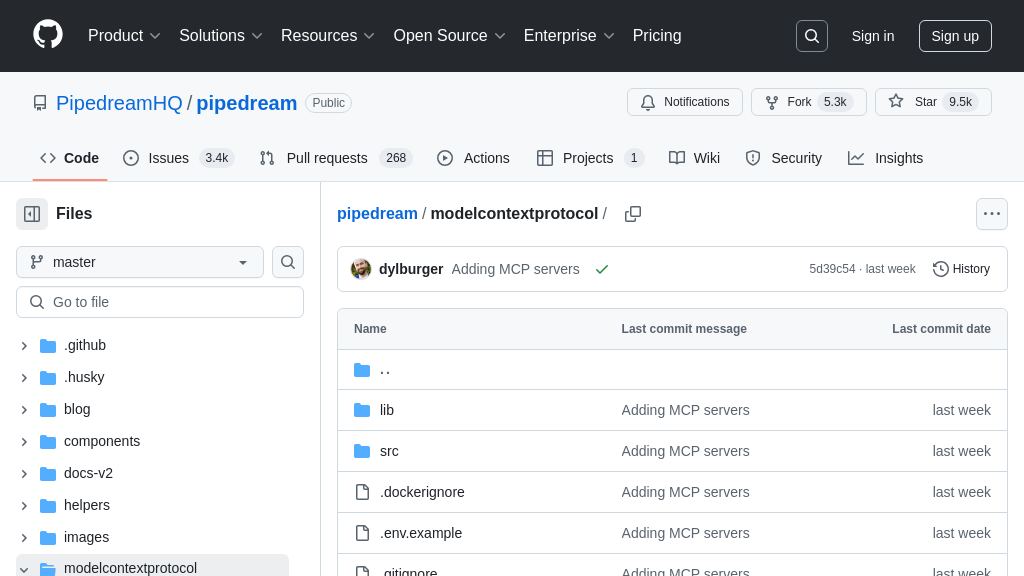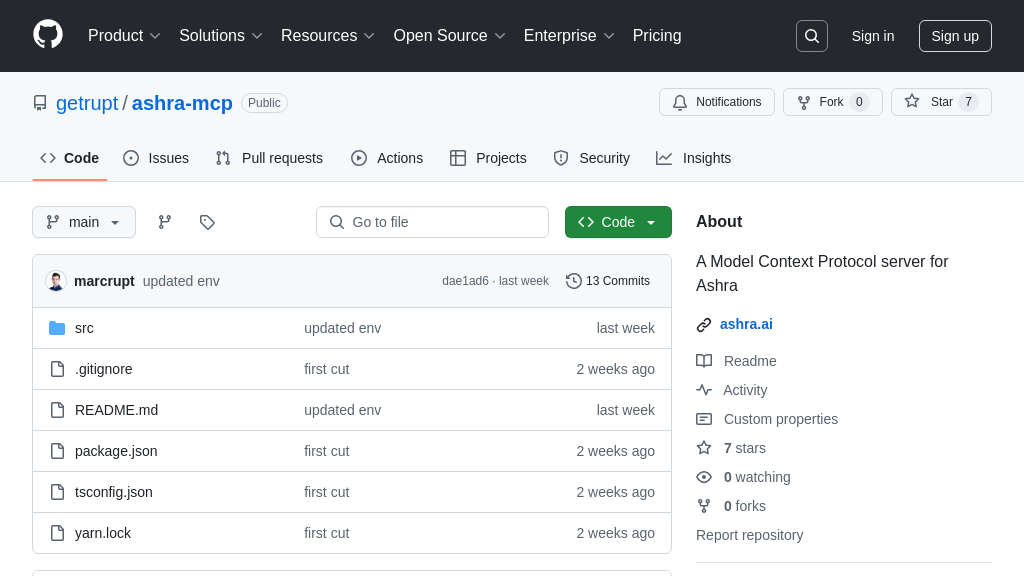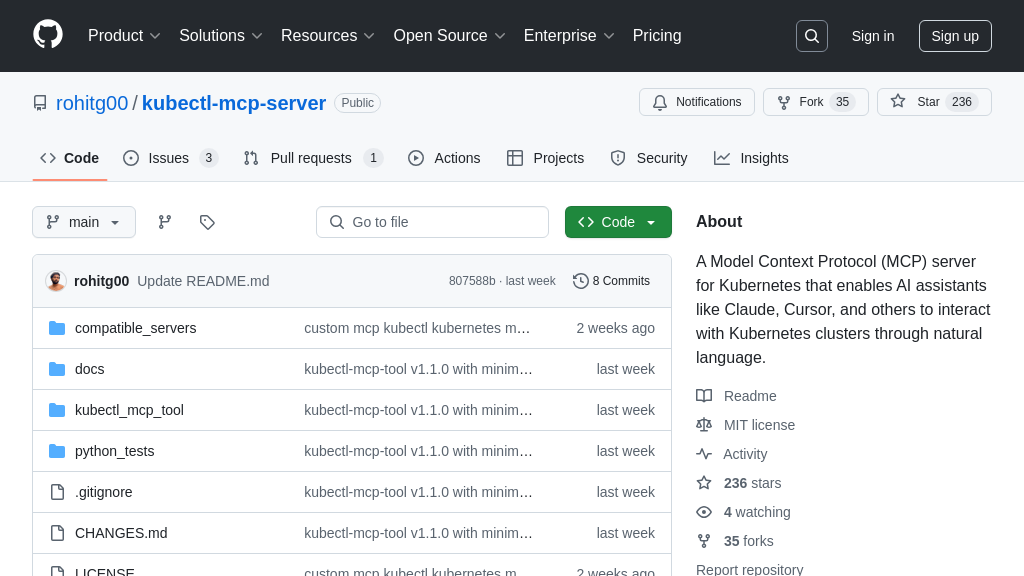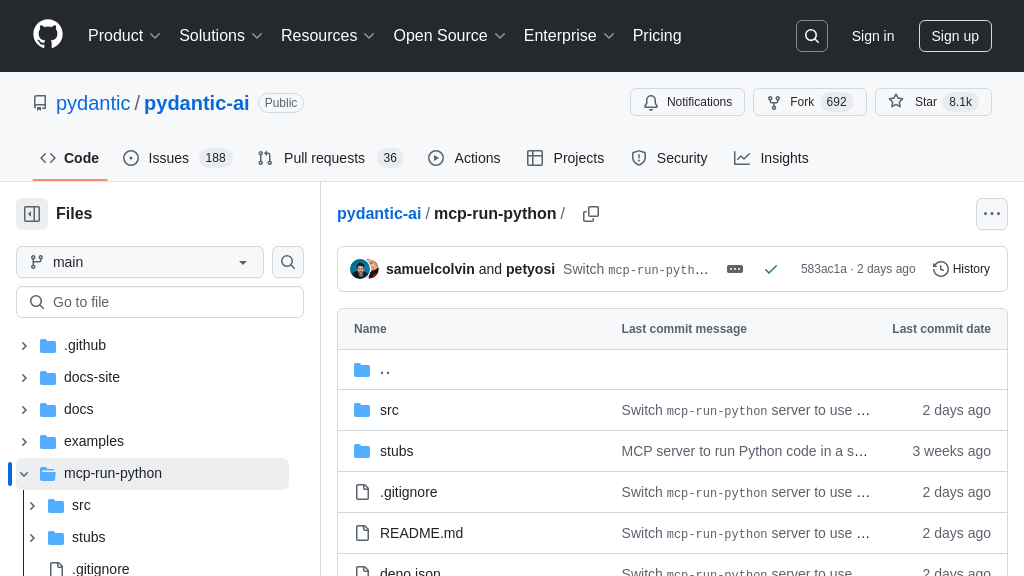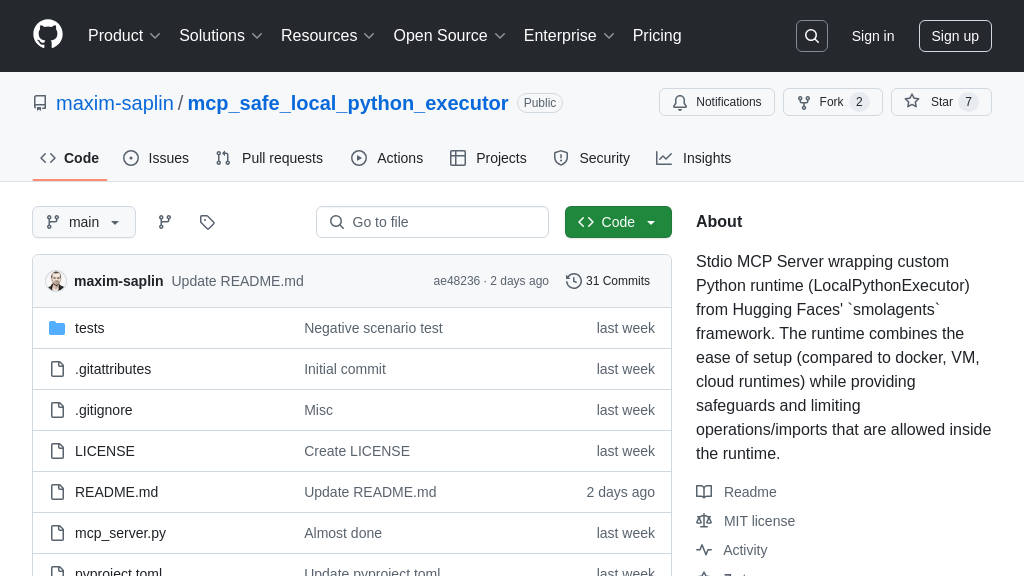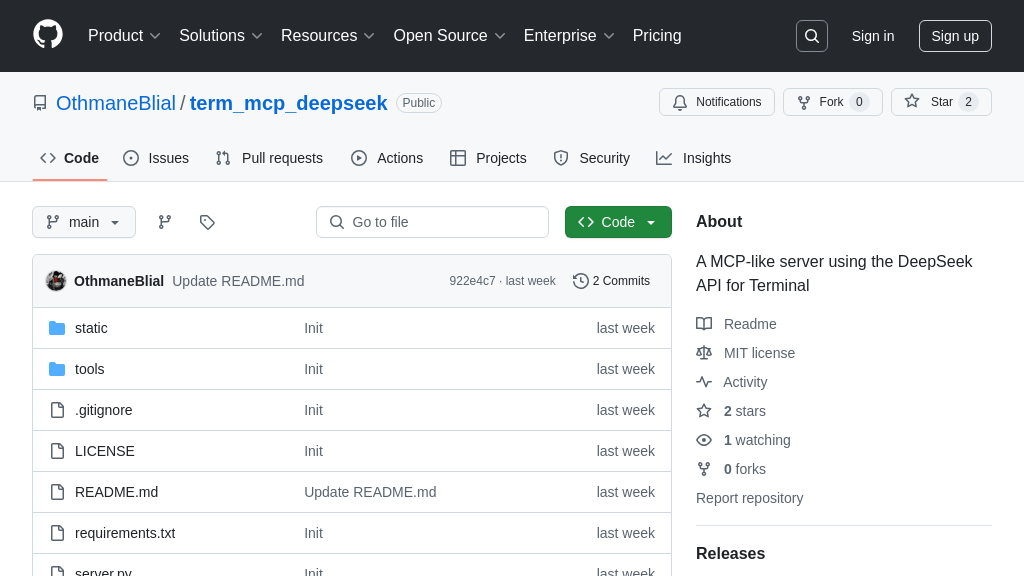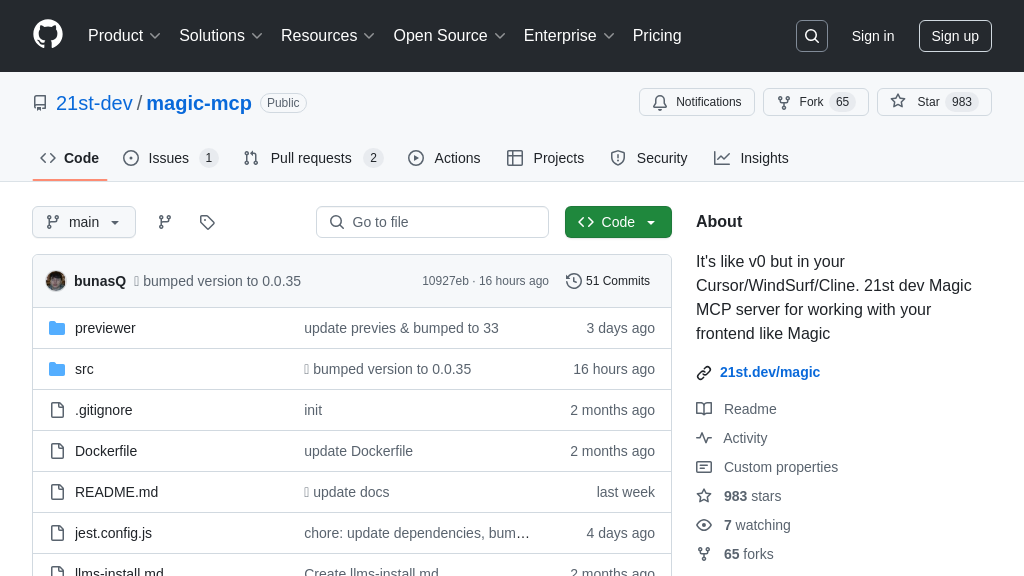ModelContextProtocol.NET
ModelContextProtocol.NET: C# SDK for MCP, enabling seamless AI model integration with standard I/O and tool integration framework.
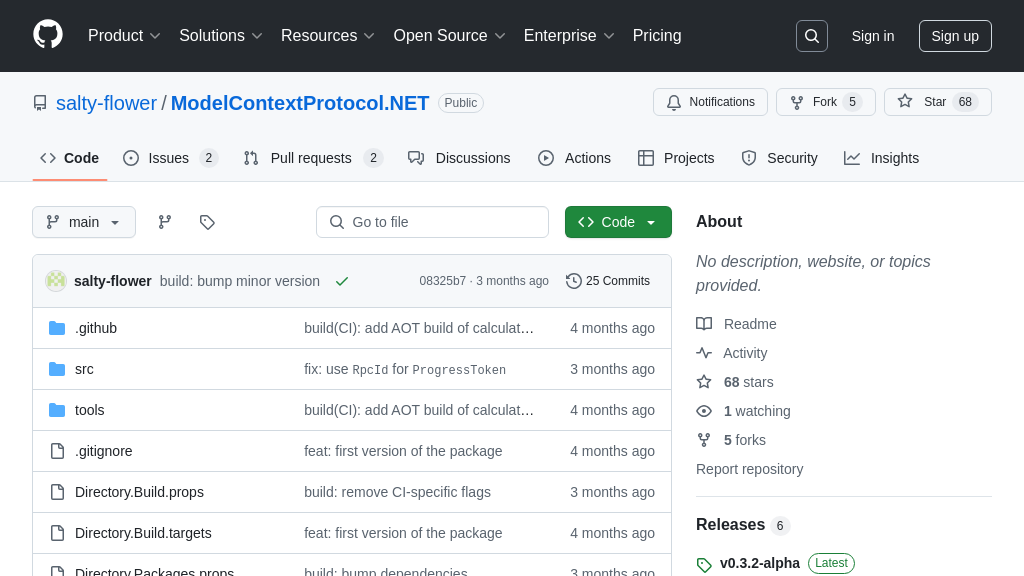
ModelContextProtocol.NET Solution Overview
ModelContextProtocol.NET is a C# SDK designed to streamline the integration of AI models with C# applications using the Model Context Protocol (MCP). This SDK simplifies communication through standard input/output and offers a robust framework for integrating tools. Notably, it's compatible with Native AOT compilation, enhancing performance.
Key features include a calculator demo showcasing logging, tool handling, request/response processing, and error management. While WebSocket support, resource management, and a prompt system are under development, the core functionality is ready for use.
Developers benefit from its ease of use, dependency injection support via handler classes, and the option to directly provide functions. To get started, simply install the server package and configure the server with your desired tools and transport mechanisms. ModelContextProtocol.NET empowers C# developers to efficiently build and deploy AI-powered applications.
ModelContextProtocol.NET Key Capabilities
Standard I/O Communication
ModelContextProtocol.NET supports communication via standard input/output (stdio), enabling seamless integration with AI models that interact through command-line interfaces. This feature allows developers to establish a connection between their C# applications and AI models without the complexities of network configurations or specialized communication protocols. The SDK handles the serialization and deserialization of messages, ensuring that data is correctly formatted and transmitted between the application and the AI model. This simplifies the process of sending requests to the AI model and receiving responses, making it easier to incorporate AI capabilities into C# applications.
For example, a developer could use this feature to create a C# application that sends mathematical expressions to an AI model for evaluation and receives the results back through stdio. The application would simply write the expression to the standard input stream, and the AI model would read the expression, evaluate it, and write the result to the standard output stream.
Tool Integration Framework
The SDK provides a robust framework for integrating tools, allowing developers to extend the capabilities of AI models with custom functionalities. This framework simplifies the process of defining and implementing tools that can be invoked by the AI model during its operation. Developers can create tool handlers to perform specific tasks, such as accessing external data sources, performing calculations, or interacting with other systems. The framework supports dependency injection, making it easier to manage dependencies and write testable code. By providing a structured approach to tool integration, ModelContextProtocol.NET enables developers to create more powerful and versatile AI applications.
Consider a scenario where an AI model needs to access real-time stock prices to make investment decisions. A developer could create a tool handler that retrieves stock prices from a financial API and makes them available to the AI model. The AI model could then use this information to generate investment recommendations.
Native AOT Compatibility
ModelContextProtocol.NET is designed to be compatible with Native AOT (Ahead-of-Time) compilation, which allows C# applications to be compiled into native code. This results in improved performance, reduced memory footprint, and faster startup times. Native AOT compatibility is particularly important for applications that need to run in resource-constrained environments or require high performance. By supporting Native AOT, ModelContextProtocol.NET enables developers to create efficient and scalable AI applications that can be deployed on a wide range of platforms.
This is achieved by careful consideration of the .NET features used within the library, avoiding constructs that are problematic for AOT compilation, and providing necessary reflection metadata hints. This ensures that the compiled application can be executed without relying on the JIT compiler, leading to significant performance gains.
Server Hosting Integration
The inclusion of a server hosting package streamlines the deployment of MCP servers within .NET applications. By integrating with the .NET generic host, the SDK simplifies the configuration and management of MCP servers, allowing developers to focus on implementing AI functionalities rather than dealing with low-level infrastructure concerns. This integration provides a consistent and familiar hosting environment, making it easier to deploy and manage MCP servers alongside other application components.
For instance, developers can leverage the .NET generic host's dependency injection capabilities to manage the dependencies of their MCP server and configure logging and other services. This simplifies the process of building and deploying robust and scalable AI applications.
